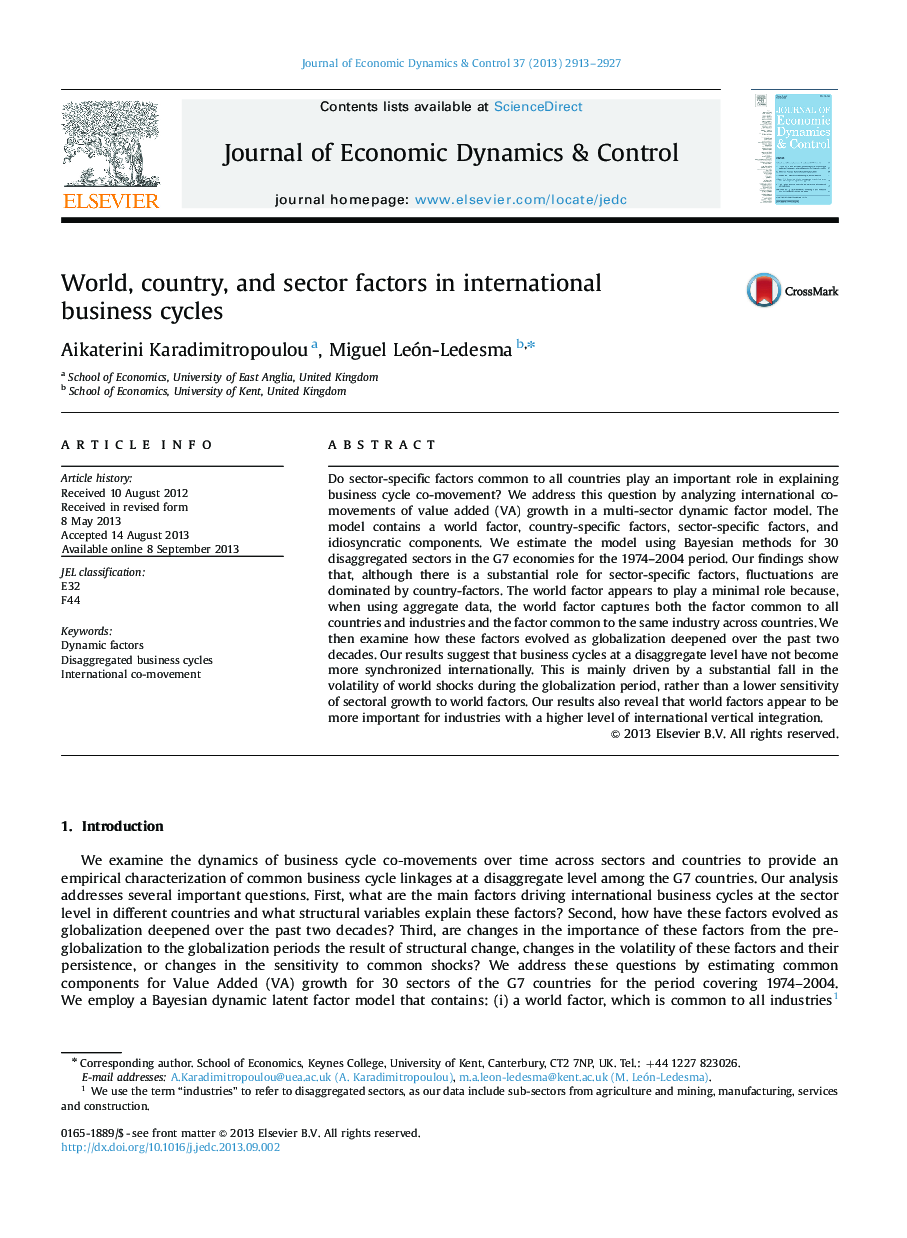| Article ID | Journal | Published Year | Pages | File Type |
|---|---|---|---|---|
| 5098679 | Journal of Economic Dynamics and Control | 2013 | 15 Pages |
Abstract
Do sector-specific factors common to all countries play an important role in explaining business cycle co-movement? We address this question by analyzing international co-movements of value added (VA) growth in a multi-sector dynamic factor model. The model contains a world factor, country-specific factors, sector-specific factors, and idiosyncratic components. We estimate the model using Bayesian methods for 30 disaggregated sectors in the G7 economies for the 1974-2004 period. Our findings show that, although there is a substantial role for sector-specific factors, fluctuations are dominated by country-factors. The world factor appears to play a minimal role because, when using aggregate data, the world factor captures both the factor common to all countries and industries and the factor common to the same industry across countries. We then examine how these factors evolved as globalization deepened over the past two decades. Our results suggest that business cycles at a disaggregate level have not become more synchronized internationally. This is mainly driven by a substantial fall in the volatility of world shocks during the globalization period, rather than a lower sensitivity of sectoral growth to world factors. Our results also reveal that world factors appear to be more important for industries with a higher level of international vertical integration.
Keywords
Related Topics
Physical Sciences and Engineering
Mathematics
Control and Optimization
Authors
Aikaterini Karadimitropoulou, Miguel León-Ledesma,
